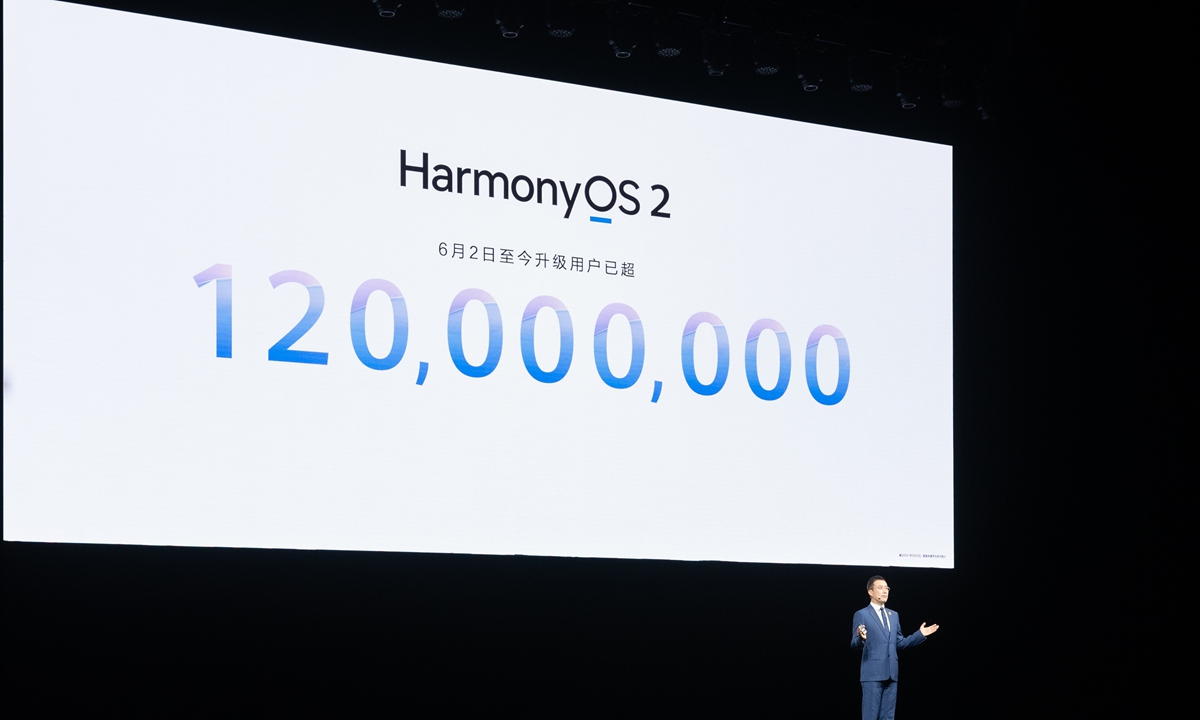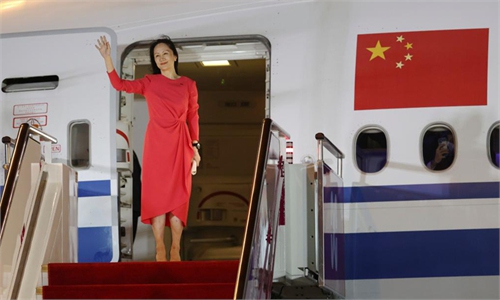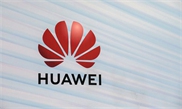Besieged Huawei won’t give up overseas plans, even if crackdown continues
Besieged giant won’t give up overseas plans

Huawei's HarmonyOS 2.0 reached another milestone on Thursday - 120 million devices
Huawei CFO Meng Wanzhou's return to China after more than 1,000 days in captivity in Canada is a major development, which displays China's ability to protect the rights and interests of its citizens and firms overseas, Chinese analysts say.Meanwhile, Huawei remains a leader of innovative technologies despite the US government has tightened restrictions of parts supply. The company has not only survived, but also becomes stronger.
Industry players said that although Washignton may continue to intensify its attack on Huawei, including imposing tough financial sanctions on the firm, the US dollar's dominance in the global payment system may also weaken - the last thing Washington wants to see.
On the exact day when Meng returned to Shenzhen on Saturday, the latest rankings for China's 500 largest private firms were announced, which showed Huawei topped the list for the sixth consecutive year, with business revenues of 891.37 billion yuan ($137.9 billion) in 2020.
The company also ranked first in research and development (R&D) in the country, with annual investment of 141.893 billion yuan last year, and the company took the first place in the number of invention patents with 90,000 filings.
Moreover, the firm launched openEuler operating system (OS) on Saturday, another self-developed OS after the HarmonyOS, as it tries to "solve the domestic stranglehold problem of lacking a homegrown OS in basic technology," and build a full-scenario ecosystem to prepare for more US supply bans.
The company vowed to never abandon the embattled smartphone sector, and it aimed to return to the "throne" of the smartphone industry, even as the company continues to suffer from a serious chip shortage.
Company workers are thrilled to share posts and cheer on their social media accounts for their CFO's return, which has injected momentum for the company.
Meng's return also serves as a booster to Chinese business circles and the A-share market, as Huawei-related shares, including those related to HarmonyOS, Huawei's smart car software unit and its chip unit HiSilicon, rose at the opening on Monday.
Nevertheless, lawyers and experts told the Global Times that Meng's return might not be the end of the firm's battle overseas, as the US government crackdown may intensify.
"I think one of the reasons why the US government settled the case with Meng is that its primary target is not Meng, [but] Huawei," Clay Zhu, attorney and managing partner at DeHeng Law Offices in Silicon Valley, told the Global Times.
Given what Meng has already admitted in the deferred prosecution deal, those factual admissions will be used against Huawei in the two lawsuits that the US Department of Justice (DOJ) is trying to prosecute Huawei, according to the Chinese-American lawyer, whose practice specialties include commercial litigation and corporate compliance in the US.
"Based on what Meng admitted in the case in Vancouver, the claims involving Skycom and the sale to Iran would be very difficult for Huawei to deny, so there is a probability that Huawei could lose on those charges." The ZTE case, in which the crosstown rival to Huawei paid a $1 billion in penalties in mid-2018 to the US over sanctions violations, could provide some perspective, he said.
"The following case could be 'kind of difficult,' but overall, it will be fine," a person close to the case told the Global Times on Monday.
The US has been prosecuting foreign corporations over accusations of export control violations and intellectual property theft for decades, and Huawei's case is just one of them, said Zhu, noting that Huawei is a champion of the Chinese high-tech industry, rendering it a prime target of the DOJ.
The export control sanctions on Huawei are severe, and comprehensive financial sanctions from the Office of Foreign Assets Control (OFAC) of the US Treasury Department are in play if the US takes it to the next level, Zhu said.
If the US chooses that approach, Huawei's ability to do business internationally would be severely curtailed. The OFAC sanctions, if in place, will block the firm from doing business through any international bank, he said.
Clearing could be the last card the US can play against a single firm, which could leave Huawei "paralyzed," but the US cannot gain anything from such a move, so there's no meaning for it to do that, another tech industry player told the Global Times on Monday.
The person said the move could only prompt China to switch faster to other clearing systems, rather than relying on the US dollar payment system. Indeed, many countries in the world are faced with the risk of a weaponized dollar payment system and a growing urgency to find alternatives.
For instance, China and Russia's de-dollarization effort has witnessed a breakthrough, as the dollar's share in bilateral trade dropped from 90 percent in 2015 to 46 percent in the first quarter of 2020, falling below the 50-percent mark for the first time, according to the Financial Times.
"There will be more countries joining force if the US continues to wield its financial sanctioning stick, and that will be the last thing the US wants to see," said the person.


